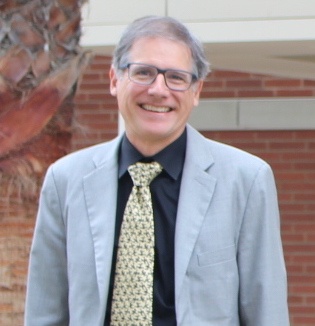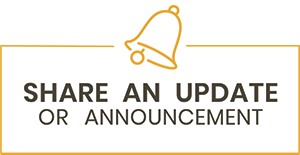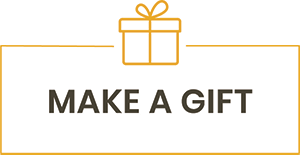February 2022 Newsletter
A Note from the Dean

Hello! And welcome to this edition of our Discovery: The CNSM Factor Newsletter. After a precautionary two-week pivot to remote learning, we are officially back on campus full time. It's been a joy to have our halls buzzing with energy again and to see our students back working in our labs. Your support and engagement over the last 2 years has been invaluable to keep the college functioning and as we get back to campus, we're able to focus more fully on our mission and goals. Equity, diversity, and inclusivity are at the forefront of the work we do in CNSM and I hope you enjoy this quarter's inside look at some of the exciting and impactful projects we have going on.
Happy reading!
At a Glance
Here are the articles you will find on this page. Use these links to jump to a particular article, or continue scrolling to read them all!
5 CNSM Projects to Watch
The College of Natural Sciences and Mathematics (CNSM) is committed to fostering a scientific community that is equitable, diverse, and inclusive. Here are 5 current faculty and research-driven CNSM projects.
1. Hesabu Circle

The Hesabu Circle is a program designed to support and celebrate the mathematical brilliance of peoples of African descent. The program seeks to establish connection and support for the whole community, "from pre-K to post-Doc." Through monthly culturally relevant explorations, as well as a summer "Math-Is-Me" enrichment program, the program provides restoration and inspiration for mathematical identity in the Black community. CSULB students, faculty, and staff play a critical role in the mission of the Circle.
Dr. Kagba Suaray of CNSM's Department of Mathematics & Statistics is at the helm of this national program.
Funded in part by the College of Natural Sciences and Mathematics, the Mathematical Association of America, and the Earl & Loraine Miller Foundation.
2. Young Scientists Camp

Young Scientists' Camp (YSC) provides an exciting summer program that brings students, experienced teachers, future teachers, and science specialists together for two weeks of hands-on exploration, discovery, and fun. The program offers a physical science program for girls entering 9th-12th grades with the aim of encouraging girls to pursue the physical sciences in high school and beyond.
YSC also hosts the SEE US Succeed! Program, two-week summer science camp program that provides hands-on, inquiry-based science investigations for Long Beach Unified K-5th grade students experiencing homelessness.
During COVID-19, YSC offered virtual experiments and lessons via social media.
Funded by Jeffrey B. Henriques, Jr., Beckman Coulter Foundation, Fluor Corporation, Los Altos United Methodist Church, and Mary Jane Martinez. Hosted by the Science Education Department.
3. Maximizing Access to Research Careers (MARC)

The overall aim of the Maximizing Access to Research Careers (MARC) program is to increase diversity in the biomedical research field by offering research support and training students from underrepresented groups to successfully enter and earn doctoral degrees in biomedical sciences. (Full program name: Maximizing Access to Research Careers - Undergraduate Student Training in Academic Research, or MARC U*STAR).
MARC is in its last year of funding but we hope to provide continued support for students in our proposal for the U-RISE program, which will serve students from underrepresented groups who are interested in biomedical research.
Funded by the National Institutes of Health (NIH) and the John and Elizabeth Family Foundation.
4. APS/Google Bridge Program

The APS/Google Bridge Program prepares Master's students to pursue a Ph.D. in physics. The students joining the program are identified as having a strong potential and drive to succeed, but have not had access to the right opportunities to prepare for entry into a Ph.D. program. All students are welcome to apply but the program especially targets students from the populations that are underrepresented in physics.
In addition to the financial support provided by the program, APS Bridge students can also receive financial support through the Google Bridge Fellowship.
Funded by Google Inc. Supported by the American Physical Society (APS) and the Physics and Astronomy Department.
5. METRIC Scholarship Program

The Mentored Excellence Toward Research and Industry Careers (METRIC) Scholarship Program aims to improve recruitment, retention, and graduation of low-income and academically talented students from communities unrepresented in the physical sciences and mathematics to prepare them to be the next generation of scientific leaders in their communities.
Funded by the National Science Foundation (NSF).
You can read more about our efforts on our Inclusive Excellence page.
Alumni Spotlight: Jessika De Jesus

In the first grade, Jessika De Jesus' class visited the Cabrillo Marine Aquarium in San Pedro, CA. The staff brought out a traveling touch tank for the students and the rest was history. It was Jessika's inciting moment that would drive a lifelong passion for marine biology and conservation.
Since that day, Jessika felt a calling to conservation work that would eventually propel her to become the first person in her family to earn a graduate degree. Jessika's parents instilled a strong sense of purpose into her from a young age and were always supportive of her interests. Even so, she recalls being concerned that a career in marine biology might conflict with some longstanding cultural expectations. Fortunately, her father recognized her passion and encouraged her to pursue her dreams.
Jessika is an alumna of the 2010 Marine Biology program at CSULB. She now works as a marine biologist and research technician in the Marine Invasions Lab at the Smithsonian Environmental Research Center (SERC).
Under the direction of Drs. Whitcraft, Pernet, Allen, Lowe, and Goodmanlowe in the Department of Biological Sciences, Jessika flourished and became a hands-on undergraduate with a passion for wetlands ecology. She began to get involved with conservation and restoration efforts while earning her bachelor's degree and working at local field sites like the Colorado Lagoon and the Huntington Beach Wetlands.
After receiving her Master's in Biology from CSULA, where she worked with Dr. Patrick Krug on the ecology and evolution of Sacoglossan sea slugs, Jessika took a job with the Smithsonian Environmental Research Center (SERC). She and her team deploy small PVC plates in different bays around the country, typically in late spring or early summer. The plates are left in the water for 3 months before they are collected and their condition and contents analyzed in a lab. SERC conducts these nationwide surveys to look at changes in marine invertebrate communities over time and monitor for invasive species that can be destructive to native populations, the environment, and the economy. These surveys tell the team a lot about how climate change and marine invasions affect native populations and invertebrate communities. The analyses allow SERC to assist agencies like the California Department of Fish and Wildlife and the U.S. Coast Guard in developing management strategies for invasive species to reduce harmful impacts and help native populations flourish.

A Fouling Plate.

SERC Team at the Port of Long Beach.

Fouling Plate Covered in Marine Invertebrates.
SERC and the Marine Invasions Lab often look for collaborators to lend lab space for plate analyses while they conduct surveys throughout the country. Thanks to the biology department's wide-reaching efforts, CSULB is a frequent collaborator, which allows Jessika the opportunity to return to the place and people who nurtured her passion for marine science and conservation every so often.
Q&A with CNSM Faculty Equity Advocate Dr. Margaret Merryfield

A: I work to help recruit, retain, and promote a more diverse faculty at the College of Natural Science & Mathematics. The bulk of my work lately has been associated with direct involvement in recruiting for the college and training within the college. All of the other colleges on campus also have a Faculty Equity Advocate thanks to a formal program started by our Faculty Affairs office.
A: Well, a lot! With regard to our students, the makeup of the faculty remains a lot less diverse than our student population – especially in terms of communities that have been underrepresented. Students seeing faculty members who look like they do is helpful. More than that, students benefit when they encounter faculty that have a strong understanding of current ideas about effective teaching, teaching to diverse audiences, and creating an inclusive environment in the classroom.
The most impactful thing for our students is the quality of the faculty they interact with and the extent to which those faculty are committed to their success. Because of that it's vital to employ strong faculty who are committed to our mission.
A: My approach starts with training but also involves working directly with search committees. I am usually embedded in the search committees from the start, go through interviews, and work with the rest of the committee to develop candidate scoring rubrics. There is a ton of effort to build in criteria that encapsulates a commitment to equity and inclusion, not just as a ground-level requirement but rather as an integral component of the position.
A: I work with search committees and other faculty and staff on strategies for successful recruitment, opportunities to reduce bias in the recruitment process, recruitment plans that reach broader audiences, etc.
A lot of the training forces everyone to confront unintentional bias when serving on a search committee. For example, when writing a position description, there is a phenomenon we see in which candidates who come from an underrepresented backgrounds won't apply to positions that make them stretch the description to fit them. But those who come from a more privileged background tend to have a "why not" mindset and are more comfortable applying. The search committees at CNSM train and work hard to not put up unnecessary barriers to people including themselves in the pool. We want all qualified candidates to see a CSULB faculty position and think "why not"!
A: Right now, in addition to all of the work we do in house, we're interested in collaborating with other colleges. Right now, we're partnering with the College of Engineering to put on workshops on implicit bias specifically tailored to our colleges since we have common challenges.
The university has a definite interest in growing the capacity of the program. I am currently FERP'ing (5-year faculty retirement program) and Dr. Deepali Bhandari (Department of Chemistry & Biochemistry) is our college's second Faculty Equity Advocate – she focuses on overall climate issues for faculty and retention. She will take the helm once my FERP is complete.
A: The committees I've worked with have been great. Change is slow and painful at times, but we have the opportunity to have lasting generational impact. The faculty that we hire can become the change we want to see and systemic impact is important to me. Finishing my career where the nature of the work has the potential to have a lasting impact on the experience of our students is personally rewarding for me.
Rehumanizing Mathematics: Making Math More Inclusive

Most people think that mathematics is unbiased, impartial, or neutral. But to Assistant Professor of Mathematics Education Dr. Brain Katz, it is important we recognize that this is not the case. "Mathematics pretends to be neutral, and by pretending to be neutral, it excludes people. Who you are matters. You don't have to leave parts of yourself at the door when you come in."
Katz is dedicated to using the principles of "rehumanizing mathematics" as a means to promote equity, justice, and inclusion in mathematics education. The concept of rehumanizing mathematics, developed by Rochelle Gutiérrez, centers the experiences of Indigenous, Latinx, and Black students in the math classroom to push back against the dehumanizing experiences so many people have with mathematics. It encourages drawing on all of their linguistic and cultural resources and lived experiences to better conceptualize math. For Katz, this work is foundational, "When people say they are not math people, it makes me sad. It makes me feel like they're lopping off part of their humanity."
Katz himself, who identifies as queer, became interested in equity justice and inclusion work at a young age. Having grown up on the outskirts of gender and sexuality norms in the South, Katz feels better able to emphasize with students whose identities are outside of other normative structures.
"Lots of people think that the way to make mathematics inclusive is to make it universal. I'm on board with the values, but that's not how it works. When we pretend that things are universal, what actually happens is the dominant elements become the default. The universality of mathematics is a double-edged sword. On the one hand, it can be used to say that anyone can belong in mathematics, but on the other, if you feel like identity matters then you don't belong."
Developing culturally responsive mathematics educators is a career passion for Katz. "Research wise I am interested in identity, epistemology, and voice in the context of mathematics classrooms. I want my students to think about those things so they can become teachers who think about those things."
Over the summer, Katz was able to work with an undergraduate student research assistant supported by funds from the Richard D. Green Endowed Deanship. Their research focused on examining the factors of how students justified mathematical proofs, highlighting how the process of doing math is as important as the result. Drawing on one's own experience is necessary, "If you can't meaningfully decide for yourself how an argument is valid, then you are being excluded from mathematics" Katz says.
Being dedicated to this rehumanizing work does not come without pushback from others in the field and from students, "Learning is fundamentally uncomfortable. You are trying to change how you think. There is occasional friction in this work, but that's an anticipated part of learning. That friction is evidence that I'm doing work that needs to be done, it doesn't discourage me," Katz says.
Scholarship Support Helps Build Solid Foundations

Four years ago, Paul Wanganga worked as a truck driver hauling a 90,000-pound semi-trailer across California, Nevada, Arizona, New Mexico, and Texas to support himself and his family who are still living in the Kikuyu Tribe in Kenya. But with a passion for mathematics and encouragement from his trucking colleagues, Paul decided to pursue a bachelors degree in Applied Mathematics.
Paul enjoys examining patterns, making sense of data, and using the results to help people. He sees that just about every aspect of our lives is becoming more digitized and knows that mastering mathematics will be an important investment. "If you look at our lives, most of the technology we interact with involves math. For instance, the FaceID on iPhones utilizes mathematical modeling, which likely could not have been possible without Applied Mathematics."
While leaving the trucking industry allowed him to pursue a college degree, Paul still needed to work to support him and his family. "I had to work multiple jobs as a private security guard, driving for Uber, and teaching calculus on campus, all while being a full-time student."
Fortunately, Paul received the Georgia Griffiths/G2 Software System Endowed Scholarship that was established to support CNSM students with career interests in technology and science-based industry using math, science, technology, or engineering applications. "I was happy because I was able to leave my security job (which took up at least 36 hours per week) and shift more hours toward my schoolwork and my job at school."
Paul thoroughly enjoys teaching calculus to fellow CSULB students. In a week Paul works with an average of 50 students. "Math becomes hard for many people when they try to memorize concepts instead of understand them. Struggling in advanced mathematics is often due to a lack of a good foundation in earlier types of math." His main goal is to give students a firm foundation in calculus so that they can later easily apply in practice.
Paul is thankful for the opportunities that his scholarship provided. "The people and organizations that give these scholarships are so important, because for many people this is the only way they can remain in school. When financial burdens become too much, it becomes easy to drop out."
In addition to his work and study, Paul likes to exercise, cook, and often volunteers in the community with beach clean-up projects. He plans to pursue a career in Actuarial Science and Data Science, either in the healthcare or insurance industries. He would also like to continue to instruct students as a passion project.
For Paul, it all comes down to community. Not only does he hope to help people in his career and his volunteerism, but he also hopes to use his talents to benefit the Kikuyu Tribe. In the long-term, Paul has dreams of returning to his home country to run for elected office.
Thank You!
Thank you for reading and thank you for your support.
We could not do the work we do without you.







